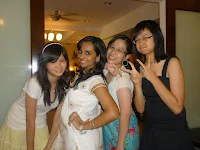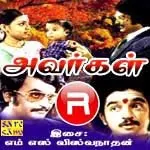It used to be an almost non-event. It came at a time when major public examinations were scheduled. Forget about gearing up for Deepavali, we were oiling ourselves to run through the grinding mill of tests and the uncertainty of passing exams.
When we started working, some of us even had the misfortune of not having a day off. Work had to go on. Still, life went on, knowing jolly well that to serve humankind equals to showing salutations to the Almighty. So we missed many Deepavali and never felt short of anything.
But then, now they tell us that the Deepavali celebrations must go on for five days. That reminds me of someone in our childhood who said that if one is healthy and wealthy with a peace of mind, every day will be Deepavali.
The homage to the Maker starts even before the event itself. To get people to clean their household, people have dedicated the day before the Festival of Lights to the Avatar of Vishnu, Dhavantri. Dhavantari is the God of Ayurveda who held the elixir of immortality during the churning of Ocean of Milk. Prayer to this deity is to invoke good health. Since 2016, India has proclaimed two days before Deepavali as Ayurveda Day.
There are many version to the reason for rejoicing Deepavali in the month of Karthik (North) or Aippasi (South) in the complicated lunisolar Indian calendar. Narakasuran, the destroying demon, was traditionally blamed for mayhem and when he was slain by his mother, Satyabhama. Narakasura begot a boon of longevity and not to be killed by a man. His death was celebrated with much pomp and light.
Now they tell us that the demon is nowhere but within us. Naraka is hell and Asura is the demon. We need to kill our inner demons to relieve ourselves from the life comparable to Hell; a life filled with sinful activities. Deepavali is the day to renew that pledge. Yeah, right but life is a daily struggle, not a one-off thing. They also say we need darkness to appreciate the bright.
Then there is the Lakshmi Pooja - offerings to the Goddess of Prosperity. The lighting of little clay lamps is to usher wellness to the household and to ward off evil eyes. And this is done daily at night for the five days. For the business community, this is deemed as necessary. The annual accounts are renewed, and the place of work is spruced up to meet the challenges of the following year.

Since Lakshmi is involved, the purchase of gold or metalware came to be intertwined. To prove the point, came another oral tradition. To avert a curse of snake bite and to trick Lord Yama who manifested in the form of a serpent, the young bride of a King stacked gold and silver coins at the entrance of the slumber chamber. The snake, tired of manoeuvring over the heap of coins and probably blinded by the glare of brightly lit lights whilst at the same time enchanted by the palatial musical accompaniment, fell asleep and missed the deadline. The King was spared.
One can do what he wants; he can be an Uncle Scrooge, be a sourpuss shunning all festivities or party all the time like it is 1999, the duties to the family and the people surrounding us need to go on. While invoking the elephantine powers of the Universe for removal of obstacles and a smooth path to the other side of life, let us not forget the elephant in the room.
N.B. It is pertinent to note how the prefix 'dhan' can be extrapolated to denote wealth and cereal (food). Since coriander (dhane)sounds similar to dhan, a delicacy is made by mixing coriander and jaggery to give it a divine justification of serving. It is, for this very reason, Panini, the great ancient Sanskriti grammarian, emphasised the importance of language and grammar in acquiring knowledge and talking philosophy.
When we started working, some of us even had the misfortune of not having a day off. Work had to go on. Still, life went on, knowing jolly well that to serve humankind equals to showing salutations to the Almighty. So we missed many Deepavali and never felt short of anything.
But then, now they tell us that the Deepavali celebrations must go on for five days. That reminds me of someone in our childhood who said that if one is healthy and wealthy with a peace of mind, every day will be Deepavali.
The homage to the Maker starts even before the event itself. To get people to clean their household, people have dedicated the day before the Festival of Lights to the Avatar of Vishnu, Dhavantri. Dhavantari is the God of Ayurveda who held the elixir of immortality during the churning of Ocean of Milk. Prayer to this deity is to invoke good health. Since 2016, India has proclaimed two days before Deepavali as Ayurveda Day.
There are many version to the reason for rejoicing Deepavali in the month of Karthik (North) or Aippasi (South) in the complicated lunisolar Indian calendar. Narakasuran, the destroying demon, was traditionally blamed for mayhem and when he was slain by his mother, Satyabhama. Narakasura begot a boon of longevity and not to be killed by a man. His death was celebrated with much pomp and light.
Now they tell us that the demon is nowhere but within us. Naraka is hell and Asura is the demon. We need to kill our inner demons to relieve ourselves from the life comparable to Hell; a life filled with sinful activities. Deepavali is the day to renew that pledge. Yeah, right but life is a daily struggle, not a one-off thing. They also say we need darkness to appreciate the bright.
Then there is the Lakshmi Pooja - offerings to the Goddess of Prosperity. The lighting of little clay lamps is to usher wellness to the household and to ward off evil eyes. And this is done daily at night for the five days. For the business community, this is deemed as necessary. The annual accounts are renewed, and the place of work is spruced up to meet the challenges of the following year.

Since Lakshmi is involved, the purchase of gold or metalware came to be intertwined. To prove the point, came another oral tradition. To avert a curse of snake bite and to trick Lord Yama who manifested in the form of a serpent, the young bride of a King stacked gold and silver coins at the entrance of the slumber chamber. The snake, tired of manoeuvring over the heap of coins and probably blinded by the glare of brightly lit lights whilst at the same time enchanted by the palatial musical accompaniment, fell asleep and missed the deadline. The King was spared.
One can do what he wants; he can be an Uncle Scrooge, be a sourpuss shunning all festivities or party all the time like it is 1999, the duties to the family and the people surrounding us need to go on. While invoking the elephantine powers of the Universe for removal of obstacles and a smooth path to the other side of life, let us not forget the elephant in the room.
N.B. It is pertinent to note how the prefix 'dhan' can be extrapolated to denote wealth and cereal (food). Since coriander (dhane)sounds similar to dhan, a delicacy is made by mixing coriander and jaggery to give it a divine justification of serving. It is, for this very reason, Panini, the great ancient Sanskriti grammarian, emphasised the importance of language and grammar in acquiring knowledge and talking philosophy.

















